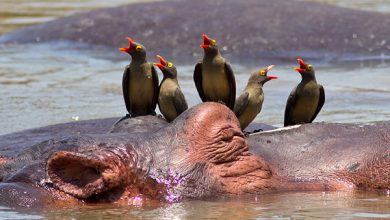Nyerere’s ideals still shape Tanzania and beyond

DAR ES SALAAM: JULIUS Nyerere, the first President of Tanzania, remains a lasting symbol of freedom, integrity and servant leadership across Africa.
Twenty-six years after his death, his vision of unity and self-reliance continues to influence the nation, particularly as Tanzania prepares for another general election.
Mwalimu Nyerere, as he was widely known, led Tanganyika to independence from British colonial rule in 1961 and later united it with Zanzibar to form the United Republic of Tanzania.
His philosophy of Ujamaa, rooted in African socialism, aimed to foster equality, dignity and economic self-dependence through cooperation and shared responsibility.
Born in Butiama, Mara Region, Nyerere’s ideals transcended the borders of his birthplace, serving as a guiding principle for African liberation movements.
He championed freedom not only for Tanzania but for the continent as a whole, believing that “no man or nation is truly free if others remain in chains.”
This year, as the nation commemorates 26 years since his death, CCM presidential candidate Dr Samia Suluhu Hassan paid tribute to Nyerere during her campaign rally at Mwenge grounds in Butiama District. She reaffirmed her commitment to advancing his vision of unity, selfreliance and people-centred development.
Dr Samia said Nyerere’s guiding principles— freedom and unity, freedom and self-reliance and freedom with responsibility—remain the ideological foundation of Tanzania’s nationhood and of CCM’s policies.
“When we speak about the Father of the Nation, we cannot separate him from the philosophical and ideological principles that shaped our country,” she said.
“All these were aimed at building a strong, selfreliant nation focused on improving people’s lives.”
She added that Tanzania’s current development strategy and CCM’s manifestos continue to reflect Nyerere’s values, with a focus on social well-being, economic empowerment and an inclusive national economy.
“Mwalimu once aspired to build the Julius Nyerere Hydropower Plant, but circumstances did not allow it at the time. Today, that vision is being fulfilled,” she said, referring to the country’s flagship energy project named in his honour.
Dr Samia also pointed to other key undertakings, such as the Mkomazi and Kidunda dams—each now 50 per cent complete— which aim to improve water supply in Tanga, Dar es Salaam, Coast and Morogoro regions.
She noted that these projects, along with the Same–Mwanga water initiative and the full relocation of government functions to Dodoma, reflect Nyerere’s long-term aspirations for a united and selfreliant nation.
ALSO READ: Mwalimu Nyerere: Education reformist who fought ignorance
“Our responsibility is to build on what Mwalimu began, to ensure Tanzania remains a country grounded in fairness, equality and unity,” she told the gathering in Butiama.
Beyond Tanzania’s borders, Nyerere was a central figure in the Front-Line States, a coalition of southern African nations that supported liberation movements against colonialism and apartheid.
Through political, moral and logistical support, he contributed to the independence of Mozambique and Angola in 1975, Zimbabwe in 1980, Namibia in 1990 and South Africa in 1994.
His residence in Dar es Salaam became a meeting place for liberation leaders such as Samora Machel, Oliver Tambo and Kenneth Kaunda.
Even before Tanganyika’s independence, Nyerere had spoken out against racial domination in Africa, calling for self-determination and majority rule.
His influence extended to Zambia, Malawi, Botswana, Lesotho, Mauritius, Swaziland and Seychelles— countries whose liberation struggles drew inspiration from Tanzania’s example.
Nyerere’s leadership also reached global solidarity movements.
In 1973, Tanzania became the first African nation to host a Palestine Liberation Organisation (PLO) embassy, recognising Yasser Arafat’s group as the legitimate representative of the Palestinian people.
“Freedom is a must for every human being,” Nyerere once said—a sentiment that continues to resonate with freedom advocates across the world.
His foreign policy was informed by the belief that true independence must go hand in hand with justice, equity and moral integrity.
He opposed all forms of exploitation—whether colonial, racial or economic—and sought to make Tanzania a credible moral voice on the international stage.
While Nyerere’s leadership was visionary, Tanzania’s support for liberation movements also relied on its citizens.
Ordinary Tanzanians contributed food, funds and even blood to freedom struggles, despite the country’s economic challenges during its formative years.
Dr Dalaly Kafumu, a historian, describes Nyerere as a leader grounded in humility and a belief in collective responsibility.
“He was not just a political leader; he was a moral teacher. His strength lay in uniting the people behind a common cause,” Dr Kafumu said.
At the founding summit of the Organisation of African Unity (OAU) in 1963, Nyerere urged African leaders to view unity as both a duty and a destiny.
“Africa’s strength lies in its solidarity,” he said—a message that retains significance in today’s geopolitical landscape.
As the 2025 general election approaches, many Tanzanians are reflecting on Nyerere’s enduring message of ethical leadership.
His teachings on peace, discipline and humility continue to shape the country’s political culture.
“Mwalimu believed that leadership is service, not privilege,” said Edward Valentino, a resident of Dar es Salaam.
“If we carry that spirit into the election with peace and respect, we honour his memory in the truest way.”
From his simple lifestyle to his voluntary retirement in 1985, Nyerere exemplified selfless leadership. His legacy remains notable not only in Tanzania but also across Africa and beyond.
As Tanzania marks 26 years since his passing, Mwalimu Julius Nyerere’s ideas continue to influence national dialogue.
His name is not merely a historical reference, but a lasting reminder of what principled leadership can achieve.
From classrooms to campaign rallies, his words and actions remain a reference point for both citizens and leaders.
As President Samia noted in Butiama, to honour Mwalimu is to uphold his values.
And as the country moves toward the next election, Tanzanians are reminded that lasting freedom, as Nyerere taught, is best maintained through peace, unity and service to others.





